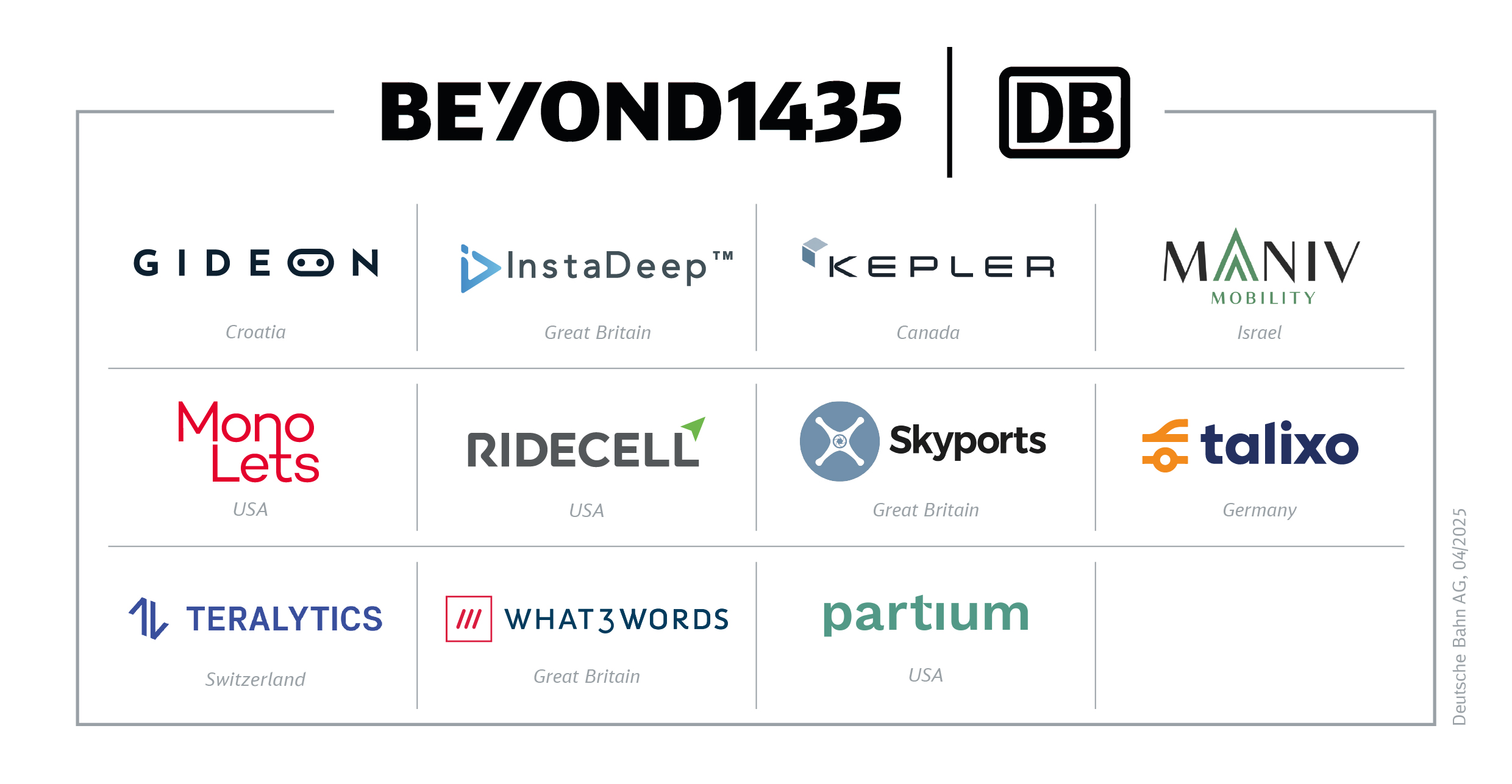Article: Beyond1435 GmbH
We at Deutsche Bahn know that we cannot provide all innovations needed for the mobility transition by ourselves. With Beyond1435 GmbH we are going ro set up cross-company cooperation models ranging from development partnerships via investments to joint ventures with our partners. We are thus strengthening Deutsche Bahn, our partners, and the rail transport ecosystem itself.
We – the team at Beyond1435 GmbH – are your contact when it comes to deep collaborations between Deutsche Bahn and external companies. In particular, the focus is on sustainability and production.
Emerging from DB Digital Ventures GmbH, which started in 2016, we continue to invest in technologies of young companies to strengthen rail transport in Germany. We will support our current and future partners by providing access to the entire network of the DB Group.
Our Partner-Portfolio:

